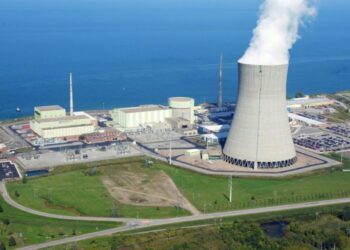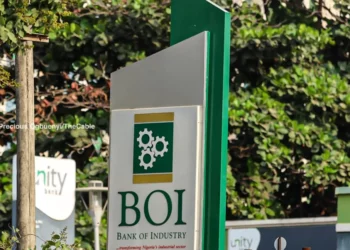The Nigerian National Petroleum Company Limited (NNPC) has deployed additional subcontractors to expedite the completion of mainline works on the Ajaokuta-Kaduna-Kano (AKK) gas pipeline and fast-track the project’s completion.
In its latest ‘Monthly Report Summary’ for July 2025, the national oil firm said the pipeline is currently 86 per cent completed.
“Ajaokuta-Kaduna-Kano (AKK) Gas Pipeline: Additional subcontractors deployed to expedite completion of mainline works and fast-track project completion,” the NNPC said in the report.
The NNPC set a new target of November 2025 for the mechanical completion of the $2.8 billion AKK Gas Pipeline project after missing at least three earlier deadlines. The new deadline was announced following the pipeline’s successful crossing of the River Niger, executed by one of the key contractors, Oilserv Limited.
On June 26, Oilserv Limited, the project contractor, said the $2.8 million AKK gas pipeline project had crossed the River Niger after years of setbacks due to its “difficult terrain”.
Four days later, Oilserv said the pipeline is expected to achieve mechanical completion by the end of 2025.
In July, the NNPC’s group CEO, Bayo Ojulari, said the $2.8 billion AKK gas pipeline project would revive industries in northern Nigeria.
The 614-kilometre AKK pipeline, a 40-inch diameter high-pressure gas transmission system, aims to revolutionise Nigeria’s gas supply by delivering 2.2 billion standard cubic feet of gas per day to power plants and industries in Abuja, Kaduna, and Kano. The pipeline is also expected to stimulate northern Nigeria’s economic revitalisation and industrial growth.
Oilserv, an indigenous Nigerian energy services company, is responsible for constructing half of the pipeline, covering around 303 kilometres from Ajaokuta to the Kaduna State-Niger State border, while Brentex Construction Limited is handling the remainder to Kano.
A major technical hurdle was the crossing of the River Niger, the longest and most complex of the seven critical river crossings on the route. This was achieved using horizontal directional drilling, a trenchless technique essential for preserving sensitive ecosystems and ensuring pipeline integrity. The crossing marked a pivotal moment in the project, de-risking the pipeline’s completion path.
Despite challenges related to rugged rock terrain requiring extensive blasting, Oilserv is on track to complete its segment by the end of 2025.
Ojulari, emphasised the strategic importance of the AKK pipeline, describing it as a milestone in Nigeria’s journey toward energy security, economic development, and industrial resilience.
He affirmed that the pipeline’s mechanical completion—meaning all mechanical work, including installation and welding, is finished—should be achieved by November 30, 2025, with full operational commissioning expected to follow in 2026.
Crossing the River Niger, more than two kilometres wide at the crossing site, proved especially formidable. The chairman of Oilserv, Dr Emeka Okwuosa, said crossing the Niger with a 40-inch pipeline was one of the greatest challenges.
Okwuosa said: “We could not use dredging or open-cut methods because of environmental concerns. Instead, we deployed horizontal directional drilling under the riverbed, much like what was done with the Channel Tunnel, to protect the river and the communities that depend on it.”
A similar HDD technique was used to cross the Pi River in Niger State, minimising impacts on ecosystems and local livelihoods. Yet even away from river systems, the AKK route through Kogi State, for example, has forced Oilserv to blast through hard rock to bury pipes to meet safety codes.
Security threats have posed an equally stiff challenge. Parts of North Central Nigeria have seen repeated attacks on workers, including a three-month suspension of operations after kidnappings, as well as violence around Shiroro that forced renewed security interventions.
“We have lost colleagues to these incidents,” Dr Okwuosa acknowledged, adding, “That changes how you work. You can no longer start at 6 a.m. and go until dusk. Now you must wait for the security forces to clear the site every morning and return before nightfall.”



